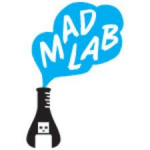What was the project challenge?
The Patchworks project was set up to explore the health and communication needs of homeless people in Morecambe. Specifically, the project set out to find out how homeless
people might co-design and co-develop a prototype digital tool using cheap, open source technology that can help to monitor and communicate their health and wellbeing.
Who were involved?
The Patchworks team of Lancaster University academics, from bio-medicine, computer science, art, design, anthropology, sociology and management science worked with Signposts, a charity focused on helping the homeless in Morecambe, and MadLab, a group of innovators who share and experiment with inexpensive open-source technology.
What new digital technology was developed?
A prototype called #Pat, a Personal Appointment Ticketing service. #Pat is intended to enable homeless people living chaotic transient lives to track their appointments with the
swipe of an RFID (Radio Frequency Identification) enabled wristband or card. The team developed a shoebox-size device that contained a Raspberry Pi low-cost computer, RFID reader, and a tiny printer, similar to that in an electronic cash register. The #Pat device then prints out a personalized reminder list of appointment dates, times and places.
As such, #Pat provides inexpensive, mobile access to information for those with limited or restricted internet access.
What are the ongoing impacts?
The biggest success of Patchworks was the development of a new process for working together where the power to imagine and invent futures is extended to vulnerable
communities.
The #Pat prototype itself is now to be developed and repurposed for a collaborative Big Lottery funded project, ‘CAN’ help, involving 15 local organisations.





